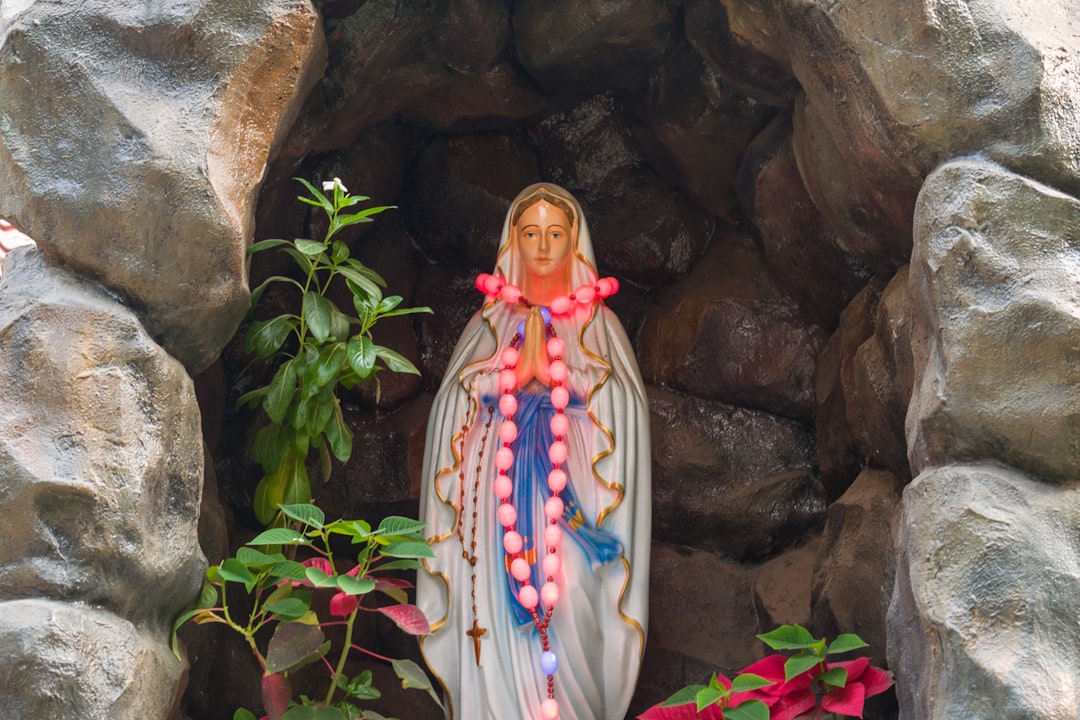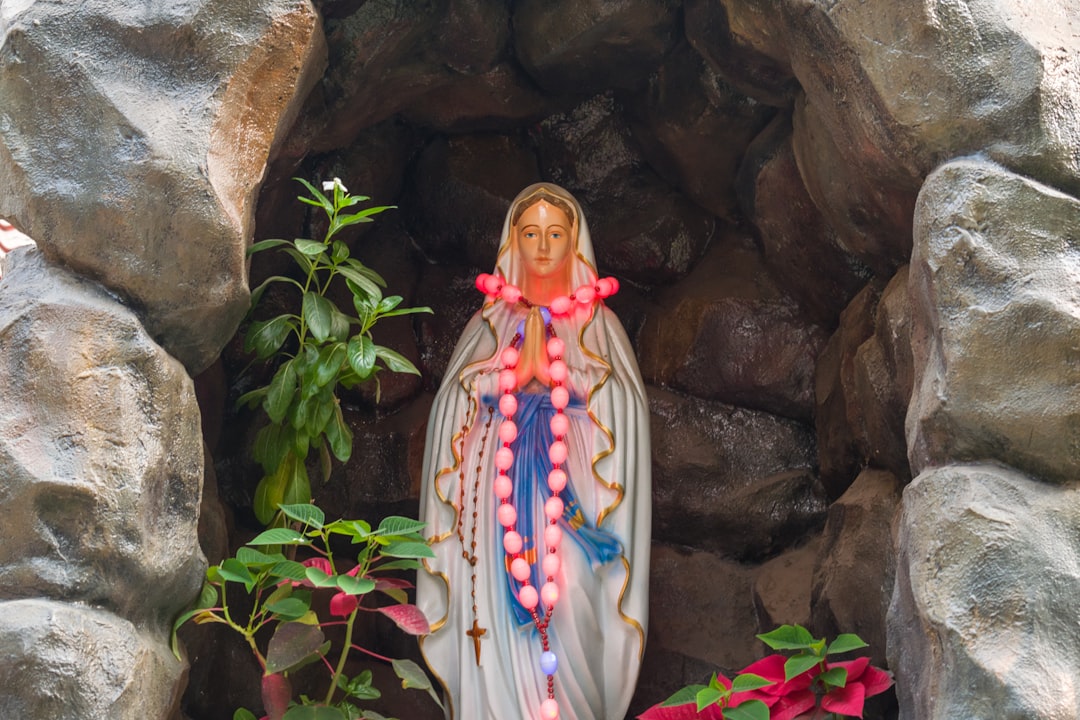The Bible is a complex work full of fascinating figures, stories, and questions that provoke inquiry. One such question that has long perplexed scholars and religious enthusiasts alike is about Bartholomew. Who was he? What was his role in the Bible? In this article, we will explore these essential queries and delve deeper into Bartholomew’s history. Join us as we uncover the truth and shed light on this Biblical figure.
Bartholomew in the Bible: An Introduction

If you’ve ever wondered who was Bartholomew in the Bible, you’re not alone. Bartholomew was one of the Twelve Apostles, a group of men chosen by Jesus Christ to spread his word and build the foundation of Christianity. Although Bartholomew appears in the New Testament, there aren’t many details about his life. In fact, some of the information we do have is contradictory.
To help clear up the mystery of who Bartholomew was in the Bible, let’s take a closer look at what we know about this biblical figure.

Bartholomew as an Apostle:
Bartholomew is mentioned in three of the four Gospels: Matthew, Mark, and Luke. However, in all three accounts, he is listed among the other apostles but not given any significant details about his life or role. In contrast, in John’s gospel, Nathanael is listed alongside Philip as two of the disciples who followed Jesus Christ. This has led many scholars to speculate that Bartholomew and Nathanael are actually the same person.
The Gospel of John and Bartholomew:
In the Gospel of John, Nathanael is described as being from the town of Cana in Galilee. When Philip invites him to follow Jesus Christ, Nathanael expresses skepticism, saying, “Can any good thing come out of Nazareth?” However, after meeting Jesus, Nathanael professes his belief in him, calling him the Son of God and the King of Israel. While the Gospel of John never explicitly refers to Nathanael as Bartholomew, many scholars believe that the two names refer to the same person.
Bartholomew in the Synoptic Gospels:
In the synoptic gospels (Matthew, Mark, and Luke), Bartholomew is listed alongside the other apostles, but information about his life or his role is not provided. Based on the lists of the apostles that are provided, it is clear that Bartholomew was one of the original twelve apostles chosen by Jesus Christ.
Later Traditions and Stories Concerning Bartholomew:
While there is limited information about Bartholomew in the Bible, there are many later traditions and stories that help to flesh out his life and legacy. For example, some traditions hold that Bartholomew was actually Nathanael, while others believe that he was the son of Talmai, a King of Geshur whom David conquered.
One of the most famous stories about Bartholomew concerns his martyrdom. According to tradition, Bartholomew traveled to India to spread the word of Christ and antagonized the local rulers. He was then tortured and eventually killed, possibly being skinned alive or beheaded. Despite the gruesome nature of his death, Bartholomew is celebrated as a saint in many Christian traditions.
Conclusion:
While we may never know all the details about who Bartholomew was in the Bible, his legacy as one of the twelve apostles and a faithful servant of Jesus Christ lives on. By studying the limited information we have about him in scripture and exploring the many different traditions and stories associated with his life, we can gain a greater appreciation for the complexity and richness of early Christianity.
Bartholomew as an Apostle
Bartholomew is an important figure among the twelve apostles of Jesus Christ. Although not as well-known as other apostles such as Peter, James, and John, Bartholomew played a significant role in Christ’s ministry and the spreading of Christianity.
According to the Gospel of Matthew, Bartholomew is named along with twelve other apostles. The Gospel of Luke mentions him as well, but refers to him as Nathanael, leading some scholars to believe that they may be the same person. Nathanael is also mentioned in the Gospel of John as a disciple of Jesus, and it is believed that Bartholomew and Nathanael are one and the same.
Bartholomew’s role in the apostolic age is somewhat mysterious, as there are few accounts of his activities after Christ’s death and resurrection. The Gospel of John describes Bartholomew as being present at the miraculous catch of fish, as well as at the resurrection of Lazarus. However, there are no further references to him in the Gospel.

Later traditions and stories developed concerning Bartholomew’s travels after Christ’s death. Some accounts suggest that he traveled to India, while others claim that he preached throughout the Middle East. According to tradition, Bartholomew eventually suffered martyrdom while preaching in Armenia.
Biblical scholars and historians have studied ancient texts to try to uncover more information about Bartholomew. While there is little concrete evidence about his life, scholars continue to analyze scripture and research the early years of Christianity to try to shed more light on this important apostolic figure.
In conclusion, Bartholomew was an important apostle during Christ’s ministry and played a significant role in the development and spreading of Christianity. While there are only a few references to him in the New Testament, Bartholomew’s legacy lives on through the stories and traditions passed down for centuries.
The Gospel of John and Bartholomew
Bartholomew, or Nathanael as he is also known, is mentioned several times in the Gospel of John. In fact, the first mention of Bartholomew in the Bible is in the Gospel of John. According to John 1:45-49, Jesus meets Nathanael and tells him that he saw him sitting under a fig tree before they even met. Impressed by Jesus’ foreknowledge, Nathanael declares Jesus as the Son of God and the King of Israel.
In John 21:2, Bartholomew is listed among the seven disciples who went fishing with Peter after the resurrection of Jesus. This passage serves as evidence that Bartholomew was one of the twelve apostles, as only they were present at the time. However, in John’s gospel, Bartholomew is not specifically listed among the twelve apostles.
There are several theories as to why Bartholomew is not listed among the twelve in the Gospel of John. One theory suggests that Bartholomew and Nathanael are two different people, and that Nathanael was not one of the twelve apostles. Another theory suggests that Nathanael was simply not present when Jesus specifically called the twelve apostles.
« Exploring the Depths of the Human Soul: Meaning, Purpose, and Existence.
Understanding the Sin of Omission: Causes, Consequences, and Redemption »
Despite the uncertainty surrounding Bartholomew’s placement among the twelve apostles in the Gospel of John, he still played a significant role in Christ’s ministry. His encounter with Jesus in John 1 serves as a powerful statement of faith and recognition of Jesus’ divinity.
Here is a quick list of all the references and events related to Bartholomew in the Gospel of John:
- Jesus’ Encounter with Nathanael: John 1:45-49
- Bartholomew Fishing with the Disciples: John 21:2
Aside from the Gospel of John, Bartholomew is also mentioned in the Synoptic Gospels and other early Christian texts. We’ll discuss his role in the Synoptic Gospels in the next section.
Bartholomew in the Synoptic Gospels
In the Synoptic Gospels, Bartholomew is not explicitly mentioned by name, but he is often identified with Nathanael from Cana in Galilee. The Gospel of Matthew refers to Bartholomew as being among the twelve apostles that Christ called, but doesn’t go into detail about his life or personality. However, the Gospel of Mark mentions a man named “Bartimaeus, a blind beggar,” who was healed by Jesus. Some biblical scholars believe that this Bartimaeus could be the same person as Bartholomew, while others argue that this is merely a coincidence.

In the Gospel of Luke, Jesus is said to have called twelve disciples, but their names are not listed. Instead, the names of the twelve apostles are given later, after Christ’s ministry. Some scholars speculate that this was done intentionally to avoid offending those who didn’t make the cut. According to this theory, Bartholomew may have been one of the twelve disciples called by Christ, but was left unnamed in Luke’s gospel.
Despite the lack of specific details about Bartholomew’s life in the Synoptic Gospels, there are several patterns that can be inferred about him. First, he was likely a dedicated follower of Jesus, given that he was chosen as one of the twelve apostles. Second, he was probably from Galilee, since this was where Jesus spent much of his ministry, and where Bartholomew is said to have lived according to some biblical scholars. Third, he may have had some kind of relationship with Phillip, since Phillip is often mentioned in conjunction with Nathanael in the Gospel of John and may have been the one to introduce Nathanael to Jesus.
Overall, while the Synoptic Gospels provide limited information about Bartholomew, they offer some insights into his character and the context in which he lived. To truly understand his role in early Christianity, it’s important to study not only the biblical texts, but also the historical accounts, traditional beliefs, and theological research that can shed light on this important biblical figure.
Later Traditions and Stories Concerning Bartholomew
Throughout history, there have been many stories and traditions surrounding Bartholomew, the apostle and biblical figure. While not all of these stories are confirmed or accurate, they add to the rich tradition and history of the Christian faith. Here are some of the most well-known traditions concerning Bartholomew:
-
Martyrdom: According to tradition, Bartholomew was martyred for his faith. Different accounts suggest that he was either crucified upside down or beheaded. It’s likely that he suffered this fate along with other apostles during the reign of Emperor Nero.
-
Nathanael and Bartholomew: Nathanael is mentioned in the Gospel of John as one of the disciples who followed Jesus early on in his ministry. Some biblical scholars believe that Nathanael and Bartholomew are actually the same person, despite being referred to by different names in different gospels. This theory is supported by the fact that Nathanael is mentioned in conjunction with Philip, who was Bartholomew’s friend and fellow disciple.
-
Thaddeus and Jude: In some traditions, Bartholomew is referred to as Thaddeus or Jude. This is likely due to the fact that many biblical figures had multiple names or nicknames. It’s also possible that these names were used to differentiate Bartholomew from another disciple named James, who was also known as “Jude”.
-
Missionary work: Some ancient texts and traditions suggest that Bartholomew traveled to India to spread the gospel. While there is no concrete evidence to support this claim, it is possible that Bartholomew did embark on a missionary journey to a far-off land.

While many of these stories are based on traditional beliefs and historical accounts, it’s important to remember that they are not definitive or universally accepted. Biblical scholars and theologians continue to analyze scripture and other ancient texts to learn more about the lives of the apostles and early Christianity. Nonetheless, these stories serve as a testament to the enduring legacy of Bartholomew and the other apostles who helped spread the message of Christ to the world.
Overall, Bartholomew was an important figure in the apostolic age and Christ’s ministry. While his legacy may be shrouded in mystery and legend, there is no doubting his impact on early Christianity. Whether you refer to him as Nathanael, Thaddeus, or Bartholomew, his story serves as an inspiration to Christians everywhere.
Conclusion
In conclusion, Bartholomew was one of the lesser-known apostles of Christ, but his impact on early Christianity cannot be underestimated. While not much is known about him, his significance as one of the twelve apostles speaks to his importance in the formation of the early church. From the Gospel of John to the later traditions and stories that emerged around him, Bartholomew has left an indelible mark on the Christian faith.
Through scripture analysis, historical accounts, and theological research, scholars have pieced together what is known about this biblical figure. Though there are differences in the accounts of his life, all agree that he was a faithful disciple of Christ who played a vital role in Christ’s ministry.
For those looking to learn more about Bartholomew or early Christianity, there are a variety of ancient texts and religious studies available that delve deeper into this fascinating period. Studying the lives and teachings of the apostles can give invaluable insight into the history of Christianity and the impact it has had on the world.

Overall, the story of Bartholomew in the Bible is a reminder of the power of faith and the importance of spreading God’s love. Whether you’re a seasoned biblical scholar or just starting to explore the Christian faith, Bartholomew’s example can inspire us all to live a life of faith and service to others.












